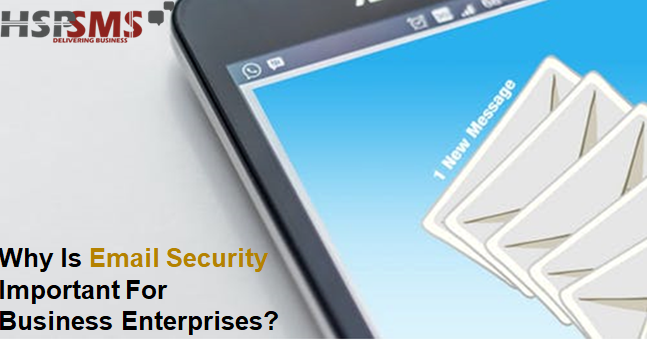Why Is Email Security Important For Business Enterprises?
Email security is still a major concern for many enterprises around the world. If technology has resulted in advanced security systems, it has also resulted in advanced methods of hacking and phishing attacks.
Existing solutions for email security are not working as effectively as they should be. That is the reason why there has been an increase of 130% phishing attacks in the last two years. The latest phishing attack was carried out in 2019 (this year) against the two giants in the industry, Google and Facebook.
A legitimate vendor was impersonated by the attackers, and they could successfully dupe the organization’s tens of millions of dollars before they even got a hint of the scam. This tells us that no enterprise is safe from a phishing attack.
Despite as many email security systems and anti-phishing software systems being available in the market, enterprises are falling prey to phishing attacks. Brand forgery emails, spear-phishing attacks, or zero-day threats are slipping through the cracks in the security system. Attackers are smart and capable enough to bypass the security features and dupe the users. Phishing is now an organized crime where a team of phishers target an enterprise and breach the security layers until they are successful in duping the employees.
By the time enterprises realize the fraud; the phishers would have fled the scene and covered their tracks with ease. Aggressive marketing has made any email security systems popular. But very few of them are being able to hold the fort against the continuous phishing attacks. There is a strong need to have an anti-phishing software that works as well as it is marketed by the companies.
Before we understand How to Block Phishing Emails, let us see what questions we can ask an email security system provider about the software, and how the questions will help enterprises realize the importance of having a proper anti-phishing software in place.
1. Does the email security system educate the users/ employees about the phishing attacks?
a. If having anti-phishing software is important, educating employees and making them aware of various types of phishing attacks is also equally important.
b. Many of the traditional email security systems do not educate users. Apart from providing a vague ‘spam’ remark with the email, there is no much detail available for the users to understand why the email is fraudulent.
c. When the anti-phishing software offers users with a reason for detecting the email as spam and also provides them with an option to know about the threat, employees will be able to realize and identify the differences in genuine and fake emails gradually.
2. Can suspicious emails be directly reported?
a. What can be easier than being able to report a suspicious with a single click? When employees can report an email through the banner that popups with the email, we can be assured that almost all the fraudulent emails will be reported.
b. If the list of reported emails are automatically updated on a dashboard for the admins to keep track of the phishing attacks, will it not be convenient in assessing the performance of the anti-phishing software?
c. Enterprises can also understand the extent to which their business is being saved from various phishing attacks.
3. What kind of technology does the email security system utilize to prevent and block phishing emails?
a. The technology adopted by the anti-phishing software will determine the extent to which it can be successful in preventing phishing attacks.
b. Using advanced technology such as computer vision to read the hidden malicious code in the emails, finding behavioral patterns of employees, identifying empty logos and detecting the minute changes in the domain names using machine learning are some of the ways in which the latest anti-phishing software can detect the phishing emails.
c. Artificial intelligence plays a major role in ensuring that the anti-phishing software can assess the cadence of messages to determine if they are fake or genuine.
4. To what extent can the email security system be deployed and scaled in the enterprise?
a. When an email security system requires additional plug-ins or add-ins, the software may not work effectively if any of the plug-ins have an error.
b. The anti-phishing software should be able to cover an unlimited number of computers, desktops, laptops, and mobile devices of employees.
c. The software should also be scalable, allowing businesses to use it across their enterprise with the same efficiency.
d. Being able to be integrated with various email systems, providing email protection in any location are some crucial aspects that need to be considered.
Enterprises will need to do some research before they select an anti-phishing software for their email systems.
Author Bio:
David Neeble is a freelance writer who can actually answer yes to the question, And from that, you make a living? In his 10 years as a professional writer, He had worked in proposal management, grant writing, and content creation.

